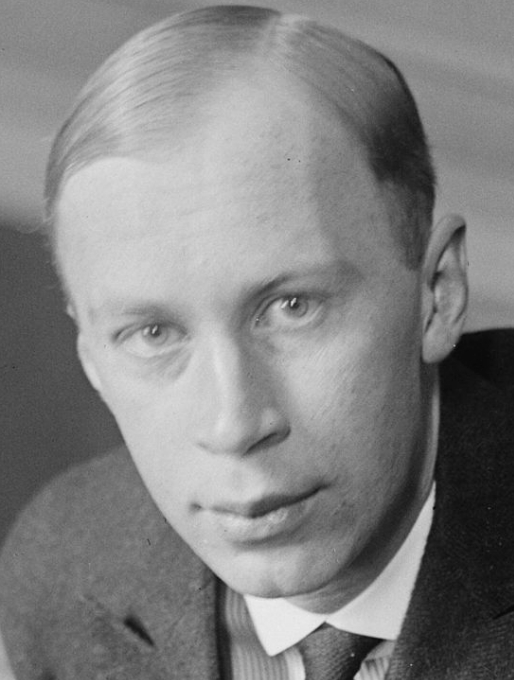On this date in 1891, one of the 20th century’s most popular composers, Sergei Sergeyevich Prokofiev, was born in Sontsovka in what is now Ukraine. Prokofiev composed works in many genres, including the opera “War and Peace,” the ballet “Romeo and Juliet,” the children’s piece “Peter and the Wolf,” for which he is best known in the West, and the score for the film “Alexander Nevsky” (1938).
Prokofiev was not raised in a religious household and never used an explicitly religious setting. His opera “The Fiery Angel” addressed religious themes but is not complimentary to organized religion. Some of his early works such as the “Scythian Suite” were inspired by Russian folklore and paganism. Prokofiev showed a talent for piano and composition at a very young age and was encouraged in this by his mother, who also took him to musical performances. In 1904 he and his mother moved to St. Petersburg, where he studied at the St. Petersburg Conservatory for 10 years.
Following the Revolution, Prokofiev spent most of his time outside of the Soviet Union, only returning occasionally and never formally accepting Soviet citizenship. He married the Spanish singer Lina Llubera in 1923, and they moved to Paris. They had two sons together. In the spring of 1936, when commissions were hard to come by from Western patrons, Prokofiev moved to Moscow along with his family.
After this time, he only left the USSR once, on a tour of America. He married Mira Mendelson in 1948 after leaving Lina in 1941. Prokofiev survived the purges but the tensions and times took a toll on his health. He had gradually fallen out of favor with Stalin and had few friends at the time of his death at age 61, having outlived Stalin by perhaps a few minutes. Because of the period of mourning for Stalin, Prokofiev’s funeral was small and news of his death was not widely reported. (D. 1953)


